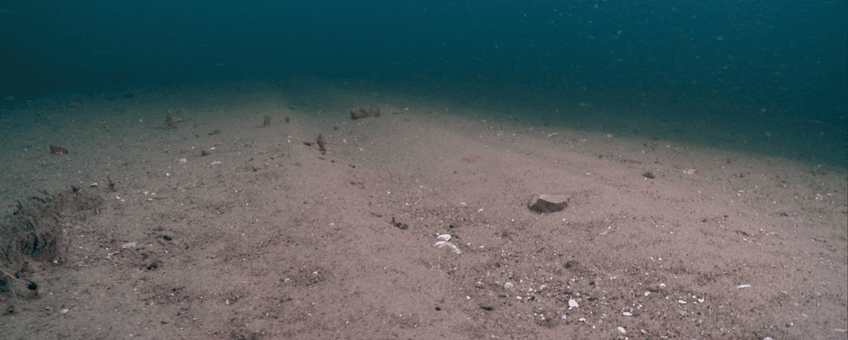
Expedition sets out to research restoration opportunities of the Atlantis of the North Sea
ARK Nature, Blue Marine Foundation, Doggerland FoundationOn Sunday November 26th, an expedition has sailed out to the Dogger Bank from the port of Lauwersoog, to scope the right locations and opportunities for the biggest nature rewilding project in the North Sea ever. The Dogger Bank is a vast, shallow area of seabed which once formed the land bridge between Great Britain and Continental Europe. It has an area roughly the size of Belgium, and the UK, Dutch and German parts have Marine Protected Area status. Despite this status, large parts of the Dogger Bank is threatened by industrial activities from the fishing and energy sectors. The expedition will be equipped with underwater video cameras to survey the seabed and ecology of the bank and find the best places for restoration.
The expedition will be headed by the Dutch Doggerland Foundation, together with ARK Rewilding Nederland, Blue Marine Foundation, Waardenburg Ecology, Martijn van Beenen Film Productions, and Danny Copeland, cinematographer. Emilie Reuchlin of Doggerland Foundation: “Our mission is to go beyond damage control of degrading activities and to unleash nature’s potential inside this iconic marine protected area. We need to ensure the North Sea is allowed space and time to recover. After years of diving and researching this area, we are now ready to explore concrete restoration opportunities with this expedition. We want to understand how we can resuscitate the Dogger Bank into the beating heart of the North Sea ecosystem.”
Example
The Dogger Bank could be an example to the world for the recovery of nature – fish, mammals, shellfish and birds – but it is now under threat from trawling in the Dutch and German parts as well as oil and gas developments across the entire international protected Dogger Bank area. Wind development is the latest threat adding to centuries of degrading activities and is increasing rapidly in the UK part.
The most important questions for the ecologists are: What remains of marine life and their habitats inside the protected area – which has been trawled for centuries and has lost most of its historically-rich fish populations? Could the Dogger become a world-leading example of rewilding where nature gets space to recover and where active restoration rebuilds the reefs that were once on the Dogger Bank? Is there much bottom-fauna left, or fish, or marine mammals? Might it be possible to bring back life to this degraded area? What would marine restoration look like and where do we start?
Large-scale rewilding
Charles Clover, author of Rewilding the Sea and co-founder of Blue Marine, said: “I am hugely excited to get out there and see what we have protected, what is going on there now and what life could be brought back in the future. In the 1950s, every school child knew that Dogger Bank was where all the fish were. There were flapper skate, there were sturgeon and huge halibut the size of a man. All gone as far as we know. Now the UK part of the Dogger is protected from trawling and dredging we have a chance to bring them back -if only we had the space designated to do so.”
Marijke van de Staak, ARK Rewilding, said: “We hope to find life. We're on the lookout for good starting points for rewilding on a large seascape scale. Only vast rewilded areas will provide enough ecological impact and robustness to withstand the forces of the sea and its industrialized use.”
Results
The ecologists will return after seven days on the Dogger Bank with a load of new data and insights. They will analyse the data and produce a concrete plan to make the largest rewilding operation in the North Sea a success. The goal is to turn this Atlantis of the North Sea into the nursery of a healthy, lively North Sea where nature and biodiversity can restore after having suffered under the damaging activities of industries like fishing, energy generation and shipping.
Text: Doggerland Foundation, ARK Rewilding Netherlands en Blue Marine Foundation
Photo: Peter van Rodijnen, Dutch Maritime Productions (lead photo: trawled seabed)
